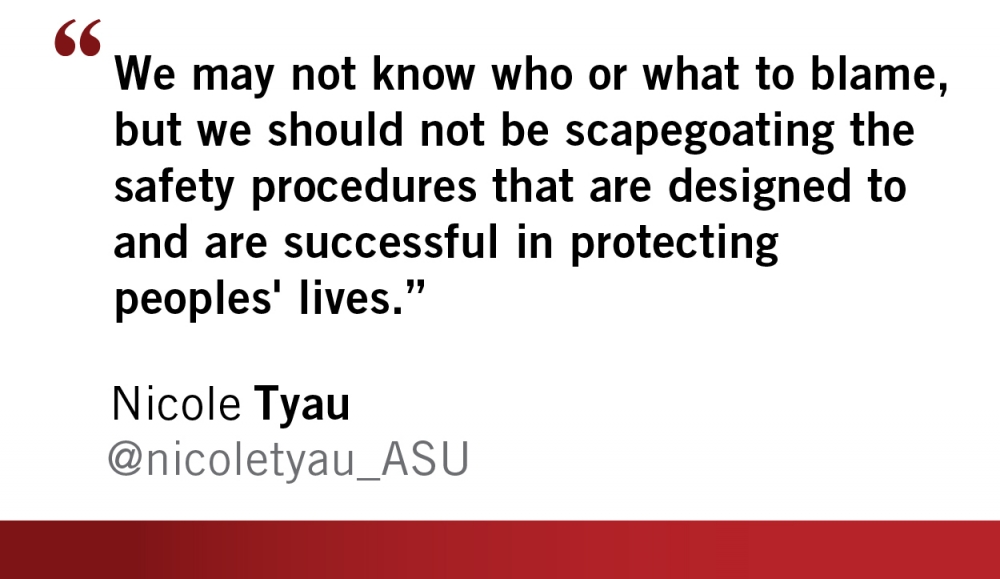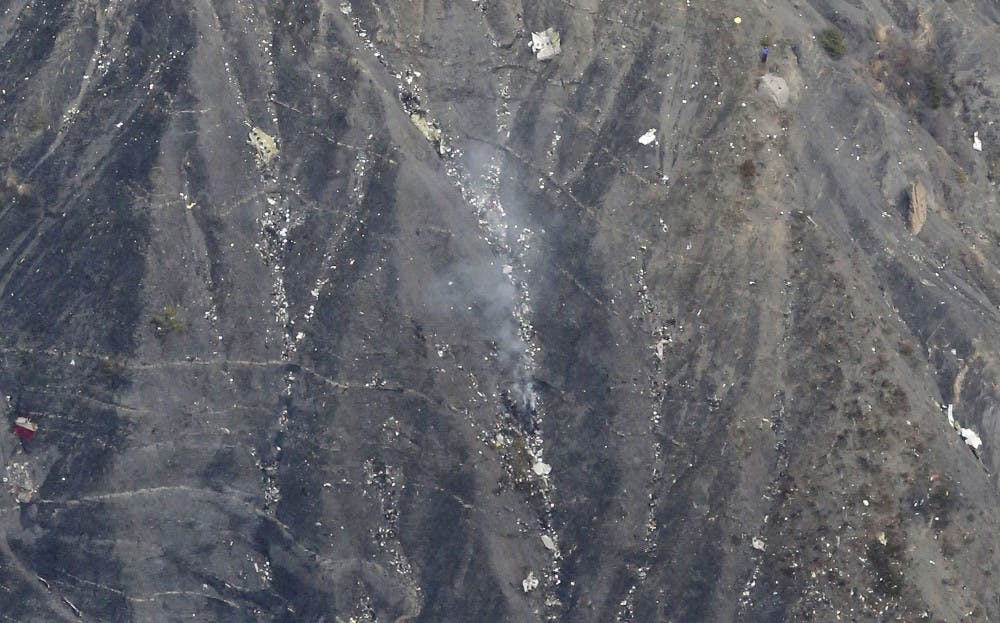Last week, a Germanwings pilot locked himself in the cockpit and crashed the plane into a mountain, killing all 150 people aboard, including 16 schoolchildren. Investigators believe pilot Andreas Lubitz intentionally brought the plane down.
Although it’s still unclear if this is the case or not, investigators have speculated that Lubitz entered a code that prevented his co-pilot from re-entering the cockpit after leaving. This is one of the safety features implemented in most large passenger planes after 9/11. A pilot in the cockpit can enter a code that prevents someone outside the cockpit door from entering a code to enter for five minutes.
Many have said these precautions need to be re-evaluated in the wake of this shocking revelation that a pilot could use them for their own dark devices.
The Germanwings crash was extremely tragic; I can’t imagine any sane person not feeling the gut-wrenching heartbreak and empathizing with the fear of those 149 victims who lost their lives that day.
However this is an isolated incident, and the safety precautions like the key codes and reinforced cockpit doors are necessary to defend against actual acts of terrorism.

If there’s one speculation I believe everyone can agree on, it’s that Lubitz was a deeply disturbed person who needed help but did not get it — at no one’s fault but his own. One does not plunge a passenger plane into the side of a mountain in their right state of mind.
"If a person kills himself and also 149 other people, another word should be used — not suicide,” Lufthansa CEO Carsten Spohr said.
Germanwings officials have said Lubitz never showed any signs of mental distress or incapacity. Spohr emphasized that any changes should “not put the whole system at stake just because of this terrible single accident.”
Lubitz’s actions should not and do not define Germanwings, nor should we question the relevance and necessity of the safety precautions we have in place. There are people in the world who do want to hurt people for no other reason than to hurt them, and that’s why we have the key codes and the reinforced doors. Although it’s hard, we cannot let our fear and our grief invalidate all the good we have tried to do in 9/11’s wake.
Airplane safety guidelines have become almost universal. In the U.S., no one person can be left alone in the cockpit if a co-pilot steps away; instead, a flight attendant is sent in until the pilot returns. However, this is not the case in Europe, and this is something that has been cited as a problem with the Germanwings crash. Spohr has vehemently rejected any notion that Germanwings should alter or change any of their training or guidelines, but I believe this "no man left alone" rule is something that can be easily and inexpensively implemented and possibly create a safer environment for their staff and passengers.
It's in tragedies like these where senselessness and mystery dominate the global dialogue that we search for someone or something to blame. We may not know who or what to blame, but we should not be scapegoating the safety procedures that are designed to and are successful in protecting peoples' lives.
Reach the columnist at nicole.tyau@asu.edu or follow @nicoletyau_ASU on Twitter.
Editor’s note: The opinions presented in this column are the author’s and do not imply any endorsement from The State Press or its editors.
Want to join the conversation? Send an email to opiniondesk.statepress@gmail.com. Keep letters under 300 words and be sure to include your university affiliation. Anonymity will not be granted.
Like The State Press on Facebook and follow @statepress on Twitter.




